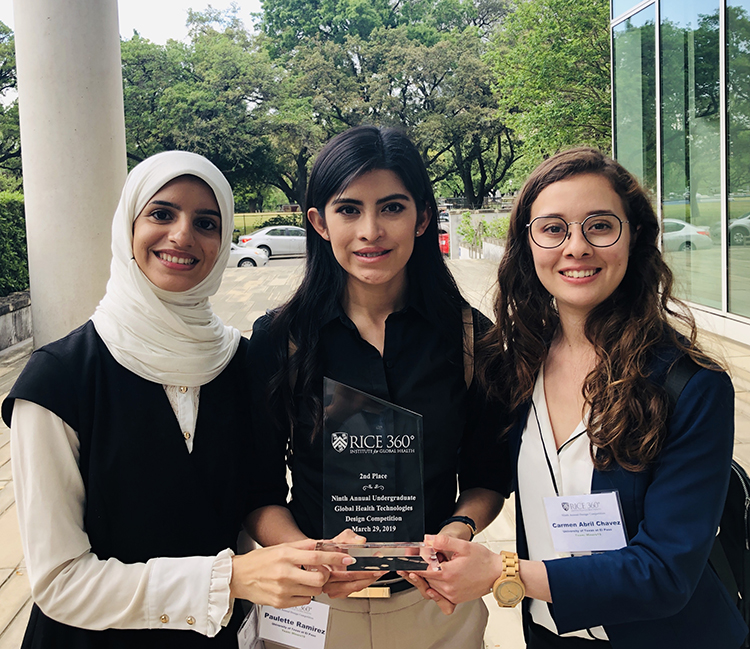UTEP Team Wins 2nd Place at Global Health Technologies Design Competition at Rice University
Last Updated on April 15, 2019 at 12:00 AM
Originally published April 15, 2019
By UC Staff
UTEP Communications
A student team comprised of a trio of undergraduates from The University of Texas at El Paso won second place for its presentation of low-cost health technologies during the Rice 360° Ninth Annual Undergraduate Global Health Technologies Design Competition at Rice University.

The team of Abril Chavez, Laila Al Saihati and Paulette Ramirez made up one of about 80 teams representing universities from throughout the world who competed at the competition, which is designed to prepare students to lead tomorrow’s global health workforce. All three UTEP students are mentored by Juan C. Noveron, Ph.D., the Ralph and Kathleen Ponce de Leon Professor in the Department of Chemistry and Biochemistry, and supported by the NSF Engineering Research Center for Nanotechnology-Enabled Water Treatment (NEWT) and the I-Discover programs at UTEP.
Their project identified some of the essential water-related needs of two communities in the Paso del Norte region — Agua Dulce in El Paso and Anapra in Juárez, Mexico. To meet those needs, the team developed a novel 3D-printed water filter that removes lead and other heavy metals, and which can be adapted to water barrels used in these communities. The design could potentially impact the process by which heavy metals are removed from water at the point-of-use in households and thus improve global health.
“This student-led work demonstrates the remarkable world-class education that students at UTEP are obtaining,” Noveron said. “I was present there during the student competition and saw how in the midst of other groups from top-notch universities, the UTEP students performed incredibly well as a cohesive team, presenting with passion and clarity a project that has enormous societal impact. The judges who presided over this competition were renowned national leaders in industry and academia, and so the entries were judged on a thorough array of criteria, including the effectiveness and potential of the design solution to improve global health. I am extremely joyful for the students’ success and how this experience will also impact their own scientific careers.”
Entries were judged on the quality of the problem definition, the effectiveness and potential impact of the design solution, and the likelihood that the solution can be successful in improving healthcare delivery in low-resource settings by faculty, clinicians, and private and public sector partners from across the country.